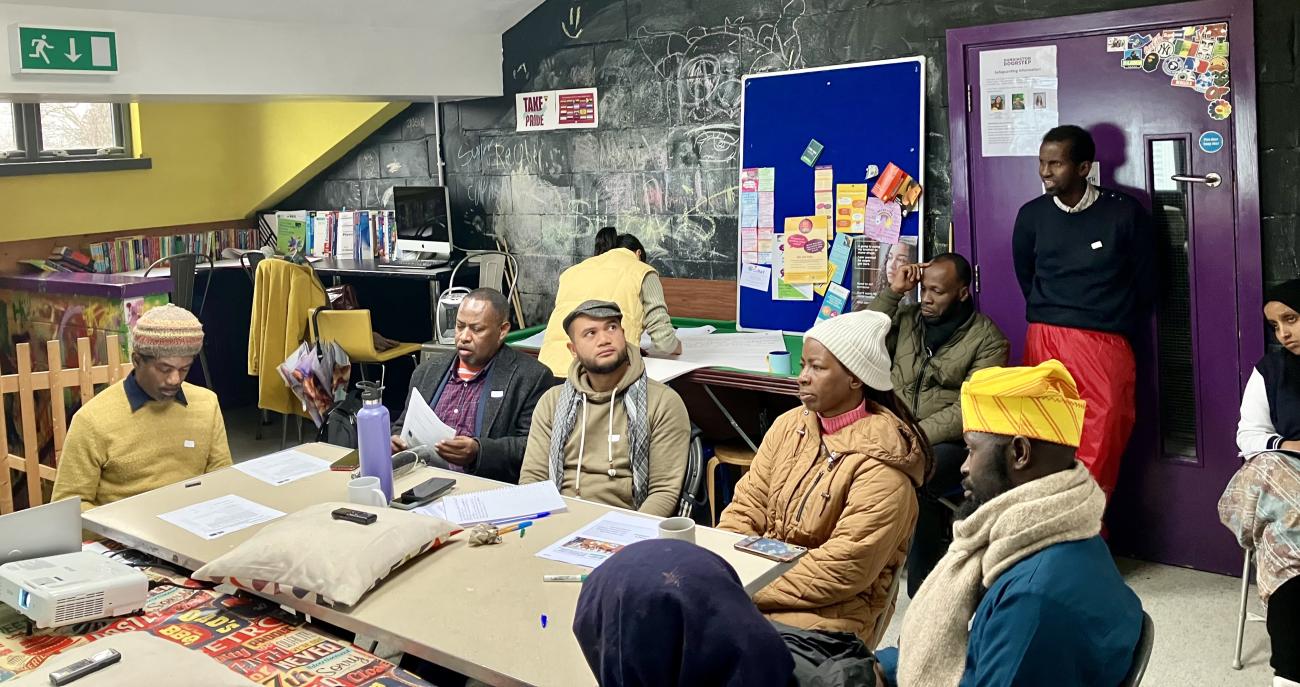A project examining whether racial background impacts energy use has been awarded funding in support of its participatory approach.
The REPAIR project, Research on Energy through PArticipatory Insights from community Representatives, is a collaboration between Uttara Narayan, Researcher in Energy Demand and Racial Justice at the Environmental Change Institute, Sarah Higginson, Knowledge Exchange Specialist at the University Research Services, Elizabeth Blakelock, an energy policy expert and inclusion specialist, and Nigel Carter, Mujahid Hamidi and Hassan Sabrie from Oxford Community Action (OCA).
REPAIR aims to understand the relationship between racialisation and energy use, in three ways.
- Contributing to evidence on the relationship through the lived experience testimonies of residents of East Oxford.
- Exploring community-centred approaches to conduct such research in a manner that is non-extractive and respectful to the participants.
- Continuing to connect this evidence with systemic stakeholders, including community organisations and decision-makers.
Through the partnership with Oxford Community Action, the study sought to understand the experiences of racially disadvantaged residents of East Oxford in using and managing energy in their daily lives. Uttara said:
In our workshops with research participants from East Oxford, we discovered that hosting people and inviting them to your house is important for them to foster a sense of community. Some of the participants told us that hosting people is closely linked to how comfortable they feel in the space they inhabit. However, this becomes challenging when they are not able to heat these spaces. They then feel uncomfortable about inviting people over, thus making it difficult for them to build social networks and sustain a sense of community. Cooking is another activity towards community building, but reducing energy bills by managing their cooking activities was another concern among participants”

The study also found that international students and recent immigrants in shared accommodation are very vulnerable to housing and energy hardships. Not only are they under-represented in research, but they face specific challenges because they are less familiar their rights and understanding of how the gas, electricity and housing systems in the UK work. Uttara added:
Even if they are entitled to certain rights, the precarity of their visas could affect their ability to comfortably raise concerns. Those in shared accommodation face an additional challenge because they have constrained access to, and limited control over the appliances they can use, and when they can use them, which can affect their wellbeing.”
Another aim of the project was to apply principles of co-creation and participatory action by being mindful of the research and workshop design. This not only meant ensuring that the agenda for the workshops were set in consultation with community champions, but also in terms of finding ways for the community champions to inform the research through active facilitation, a lesson learnt by the researchers during the course of the study. Uttara said:
An important aspect of the research in REPAIR has been to incorporate principles of ensuring that our research is not extractive towards the community and the participants. In a modest way, by ensuring our workshops were catered by the amazing OCA Kitchen, and by hiring community-friendly venues across East Oxford we aimed to ensure that the activities were conducted within the community and directly benefited them.”
Project REPAIR was made possible through a £ 30,000 flexible fund award from the ACCESS Network. The project was further awarded £2,500 as part of the University of Oxford’s Participatory Research Seed Fund to continue research on this under-represented topic by building on participants’ lived experience testimonies and finding opportunities to communicate them to systemic decision-makers.
Uttara added:
“We were working with those from a racially disadvantaged background to not only identify the challenges but also to discover solutions collectively. When discussing what can be done to tackle these hardships, there was unanimous agreement on challenging the steep hike in energy prices. To this end, many of the participants recommended a collaborative approach by democratising the means of energy production, through solar.
Our aim is to work with them to come up with ideas leading to potential ways where we can ultimately reimagine the energy system.”
The REPAIR project is one of 14 to be awarded a Participatory Research Seed Fund by the University of Oxford, to support important new participatory research activities across the Social Sciences and Medical Sciences Divisions in which researchers, members of the public and practitioners work together. This fund is supported by the Research England Participatory Research fund.
Participatory or co-produced research strengthens research outcomes by involving the communities and users of research, better recognising their experience, needs and preferences, and giving greater agency to communities to implement findings - Research England
Read more about the project.

